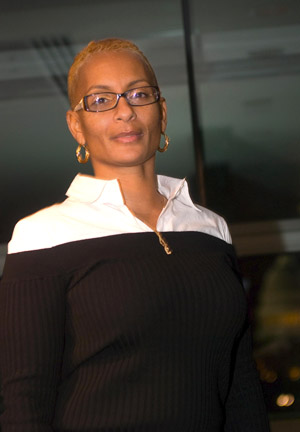Audrey Morrissey
Those who regard prostitution as a victimless crime may not know that the average age of entry into commercial sexual exploitation is between 13 and 16 years old. Those at highest risk are children with a profoundly low sense of self-worth who go looking for love in all the wrong places. Like soldiers repeatedly forced to return to a war zone, many prostituted girls have symptoms of post-traumatic stress disorder.
A mother at 15, Audrey Morrissey went along when her boyfriend “turned her out” to work the streets of Boston to earn money for their future together. As her boyfriend’s abuse compounded the horrors she experienced on the street, Morrissey turned to drugs. Even after he was incarcerated, Morrissey, addicted and “damaged goods,” felt certain that she was trapped in the life.
Fourteen hard years later, pregnant with her third child and “sick and tired of being sick and tired,” Morrissey entered detox for the fifth time: “The information they gave me at 30 was the same information they gave me at 20, but I was ready to hear it.”
A woman Morrissey had known from the streets invited her to speak about her experiences at a meeting of survivors and workers from the Department of Social Services—the first of its kind in Boston. A month later, Morrissey was invited again, this time to speak to girls at risk at a residential school. Testing her strength at the front of those rooms, Morrissey found her voice and her life’s work.
In 2003, Morrissey was hired to join an early intervention and prevention project being put in place at Boston’s Home for Little Wanderers, the oldest child welfare agency in the nation. Training service providers not only how to recognize the danger signs but also how to empathize with and support vulnerable young girls, Audrey’s vision of a path to safety and out of the life reenergized the exhausted and undervalued case workers who are often tempted to give up on this extremely hard to reach population.
Her effect on the girls themselves was even more electrifying. In group homes and juvenile lock-ups, girls who had never shared their own stories vied to sit next to Morrissey, knowing that she would not judge them and trusting that she would get them the help they so desperately needed.
In 2004, Morrissey opened yet another front in her battle against the violence of commercial sexual exploitation when the Massachusetts Department of Social Services asked if she would be willing to take on a small caseload of girls their professionals had been unable to reach. Hiring a survivor without credentials in this capacity was unprecedented and Morrissey knew it. Panicking, she called her mentor and asked, “Do they know who I am?” “Yes, Sweetie,” her mentor replied, “and that’s exactly why they want you.”
Now, a typical day will find Morrissey leading girls through a 10-week My Life/My Choice curriculum, participating in a statewide effort to reframe the responses of the police, social service agencies and the courts to prostitution, or in a psych ward, her arms wrapped tight around a terrified child who has finally found her tears. Morrissey’s most urgent priority is to continue to train and hire other survivors to do what she does. “Because the referrals are coming in really fast…and they’re getting younger and younger.”
